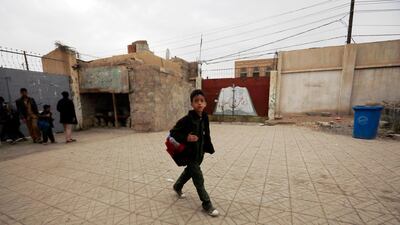About 80 per cent of the world’s poorest boys and girls are deprived of crucial pre-primary education because of limited funding, new research has found.
Children’s charity Theirworld said it meant nearly 50 million children were not able to access education in their early years.
Less than 1 per cent of aid from the international community is directed towards pre-primary learning, according to analysis carried out by the University of Cambridge for Theirworld.
Only Unicef and the Global Partnership for Education met Theirworld’s recommendation that a minimum of 10 per cent of aid should go towards pre-primary education.
Eight of the top 30 education donors do not give any funding at all for education in the earliest years.
The University of Cambridge’s Professor Pauline Rose, a co-author of the report, said the first five years of a child’s life "are among the most critical for their long-term development and the benefits of investing in pre-primary education are found to be the greatest for the most disadvantaged."
“It is nothing short of a tragedy that world leaders are failing to prioritise spending in this area. The international community must wake up and step up. Without urgent action, the risk is that some of the world’s poorest and most marginalised will continue to fall behind.”
The report is based on the most up to date figures from 2019 and doesn’t take into account the Covid-19 pandemic, which has worsened access to education in the developing world.
While there was a slight increase in the proportion of aid spent on pre-primary education from 2015 to 2019, it only rose 0.1 per cent.
“Covid-19 has exacerbated the global education crisis and pushed the world’s poorest children further to the margins. We cannot let this continue,” said Sarah Brown, chairwoman of Theirworld.
“Over the next 12 months, world leaders have a series of opportunities at high level meetings, where global stimulus plans will be developed, to show their commitment to the provision of quality pre-primary education.”
Only New Zealand (6.7 per cent) and Spain (3.6 per cent) were among the major donors to commit more than 3 per cent of their education aid to pre-primary learning.
Justin van Fleet, president of Theirworld, said some progress had been made, but not enough.
“We know that funding pre-primary education is the most important and impactful thing world leaders can do to give children around the world the best start in life and to put economies back on track following the pandemic.
“It’s time for world leaders to walk the walk and invest 10 per cent of their education aid budgets to the early years. Anything less is a failure for the world's children.”


